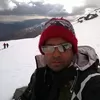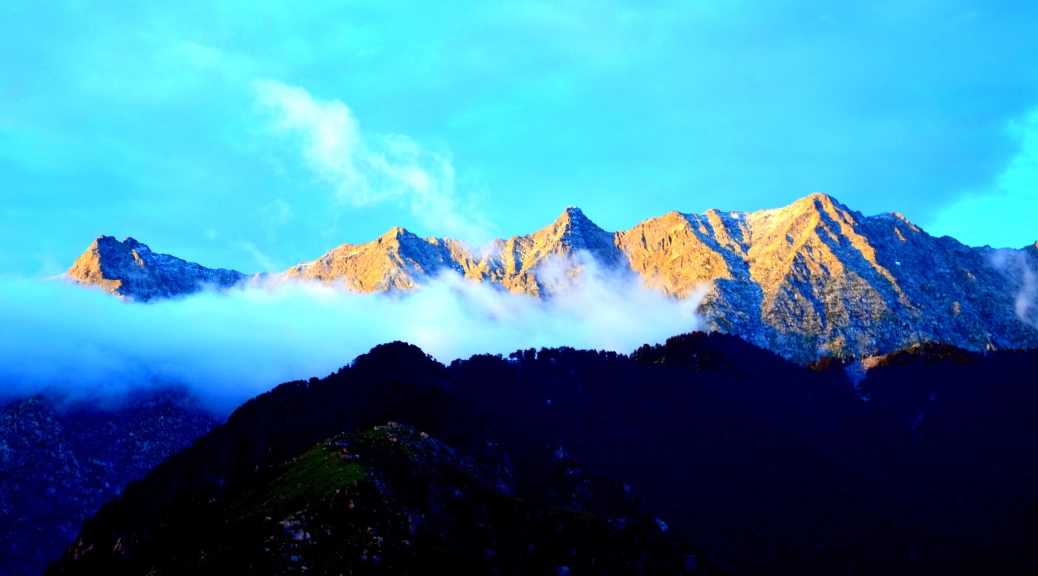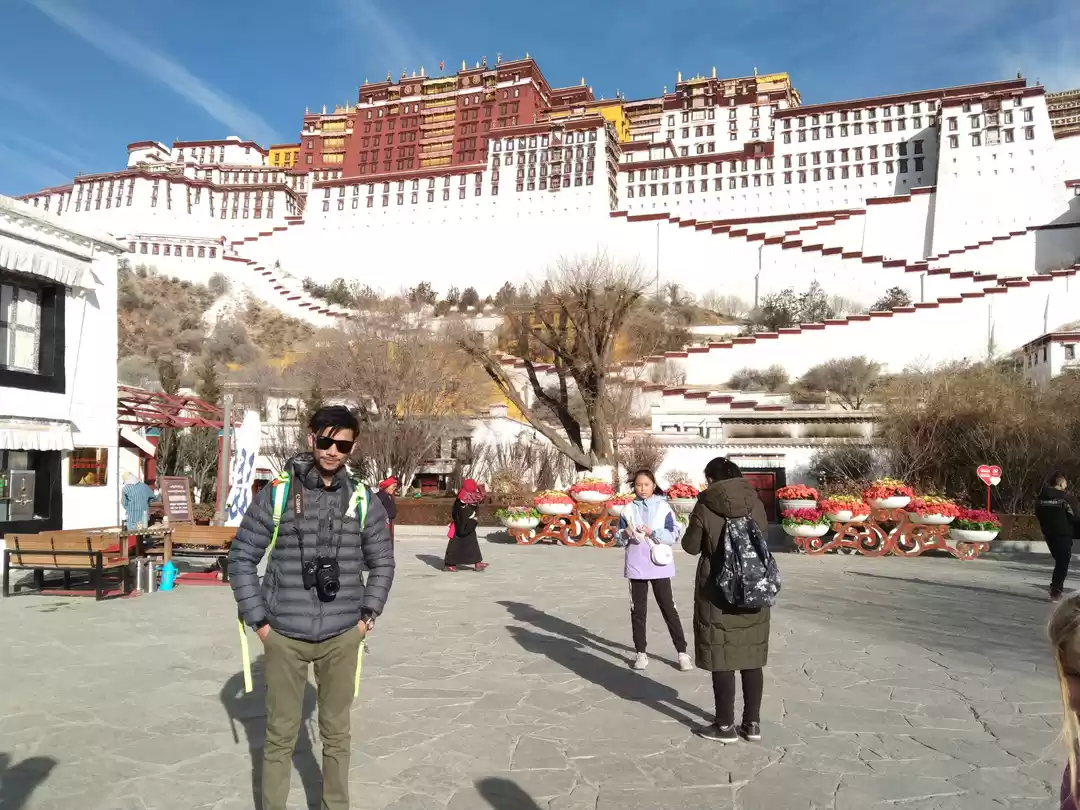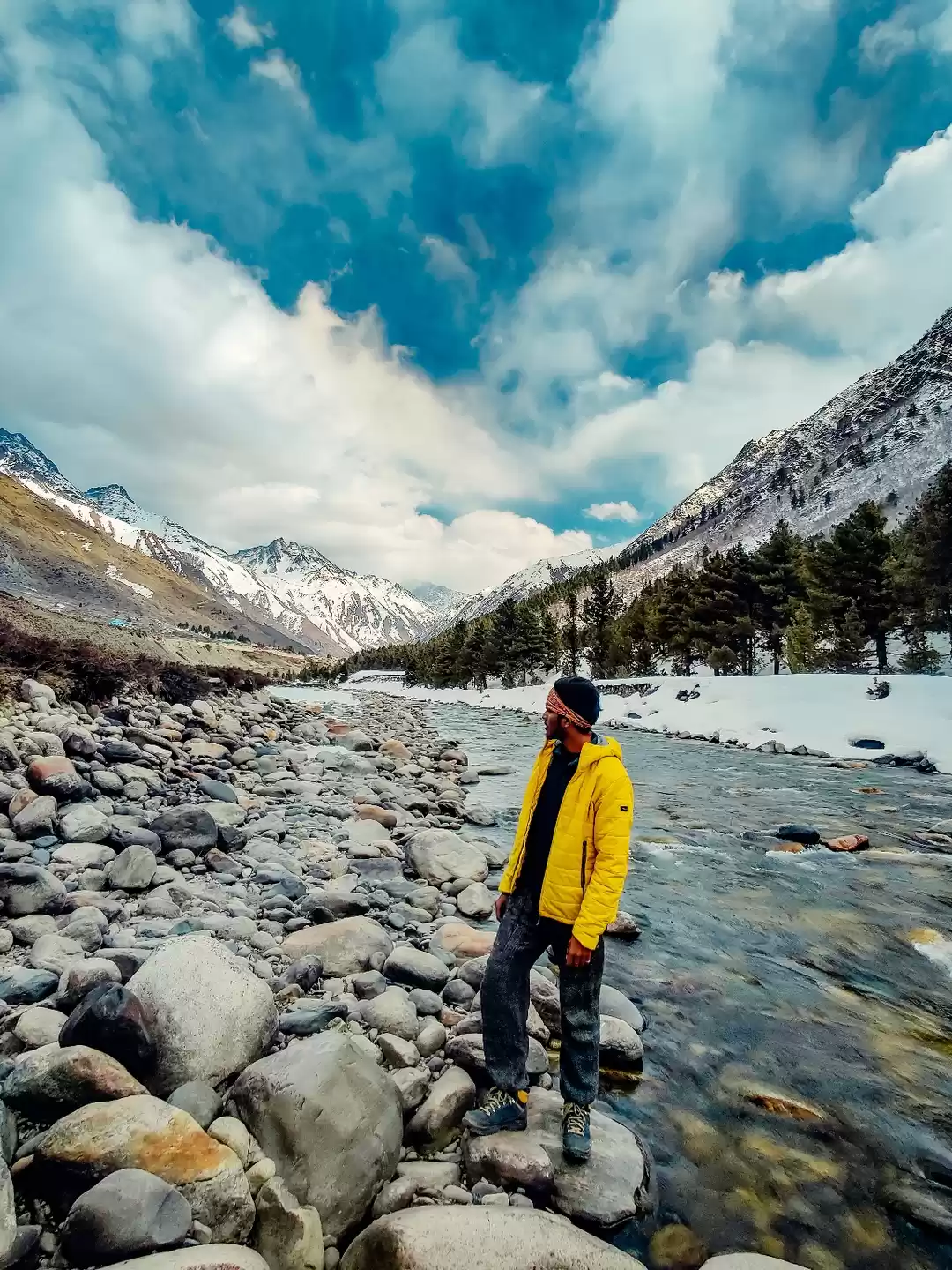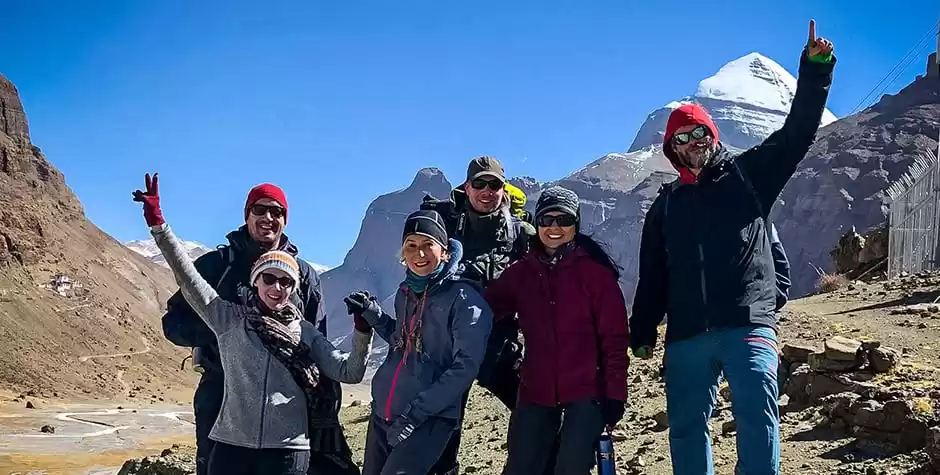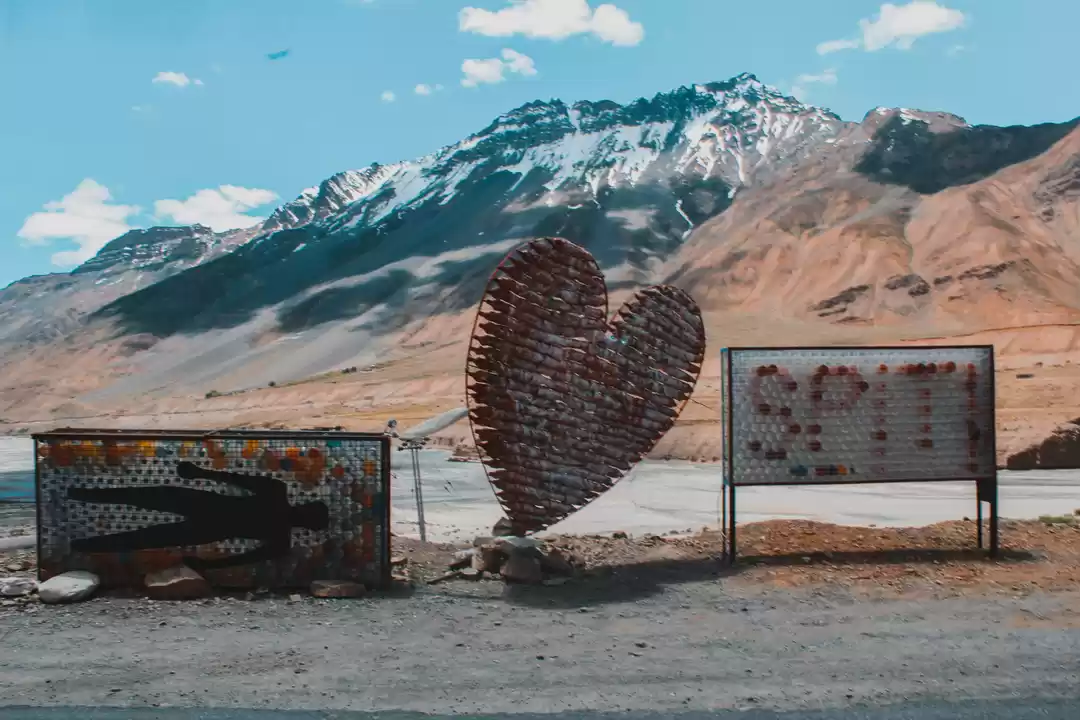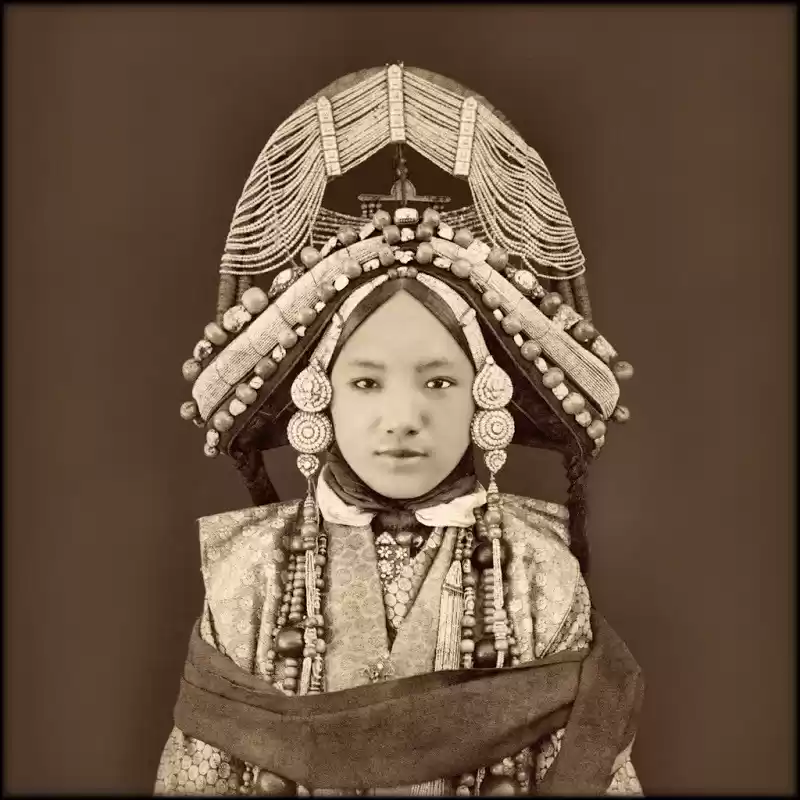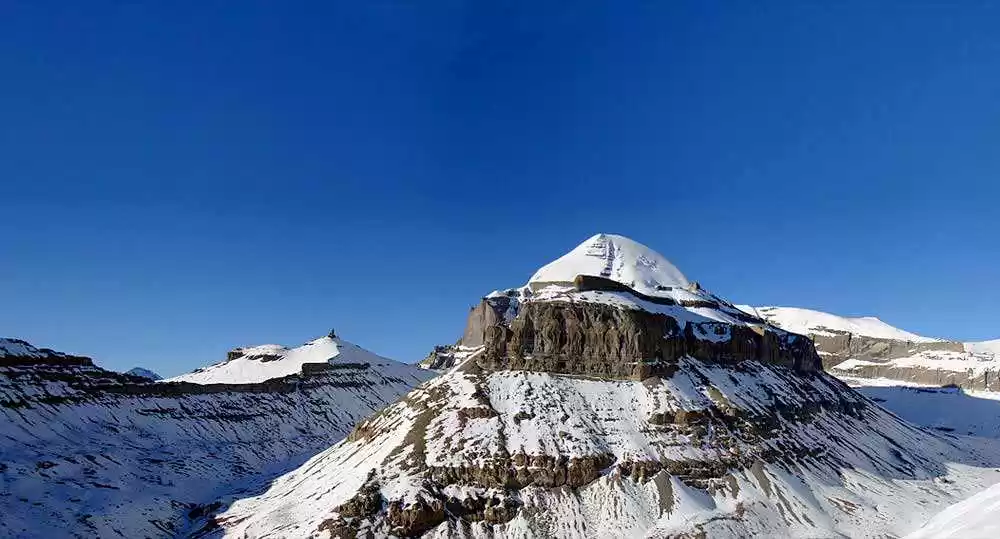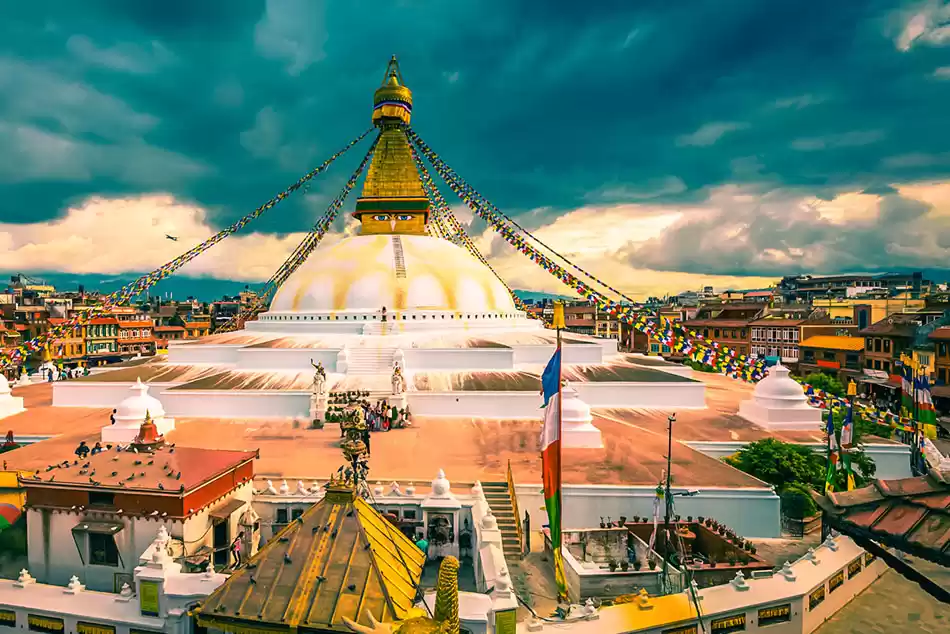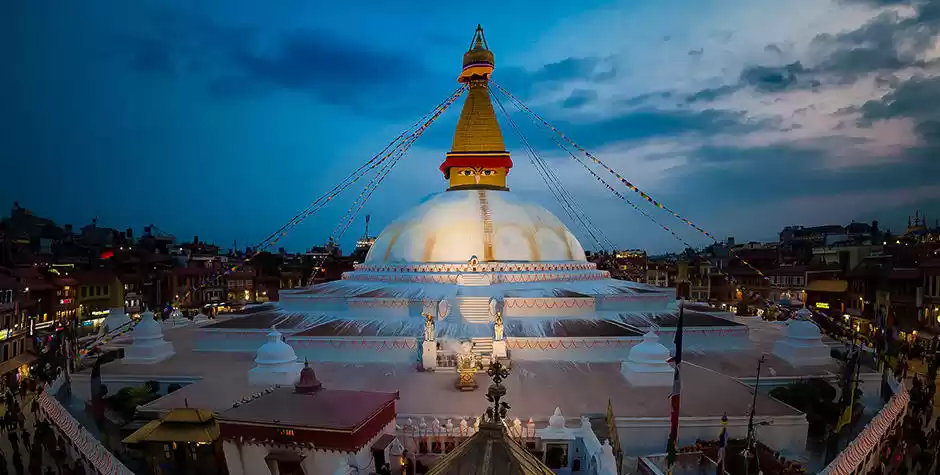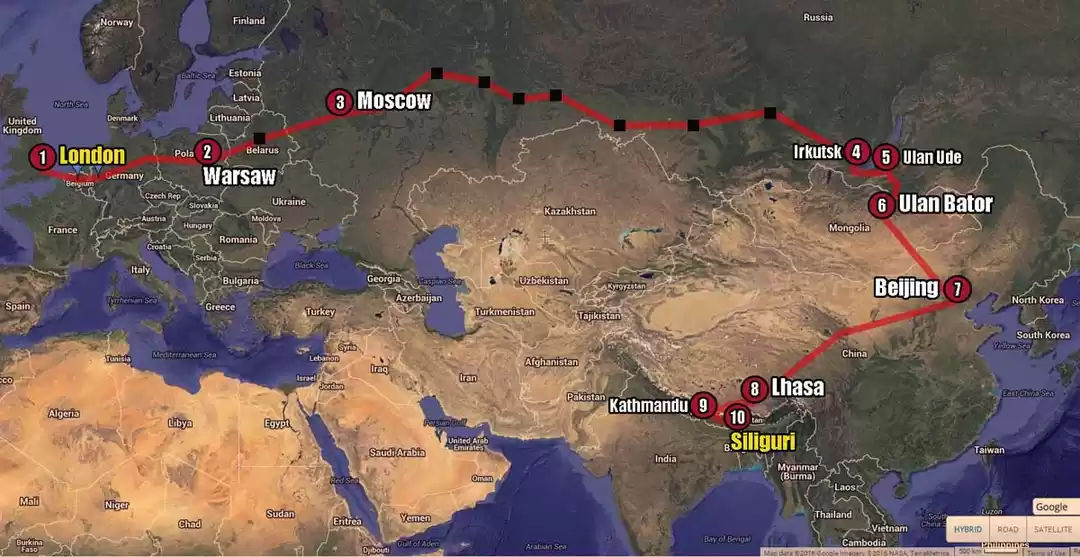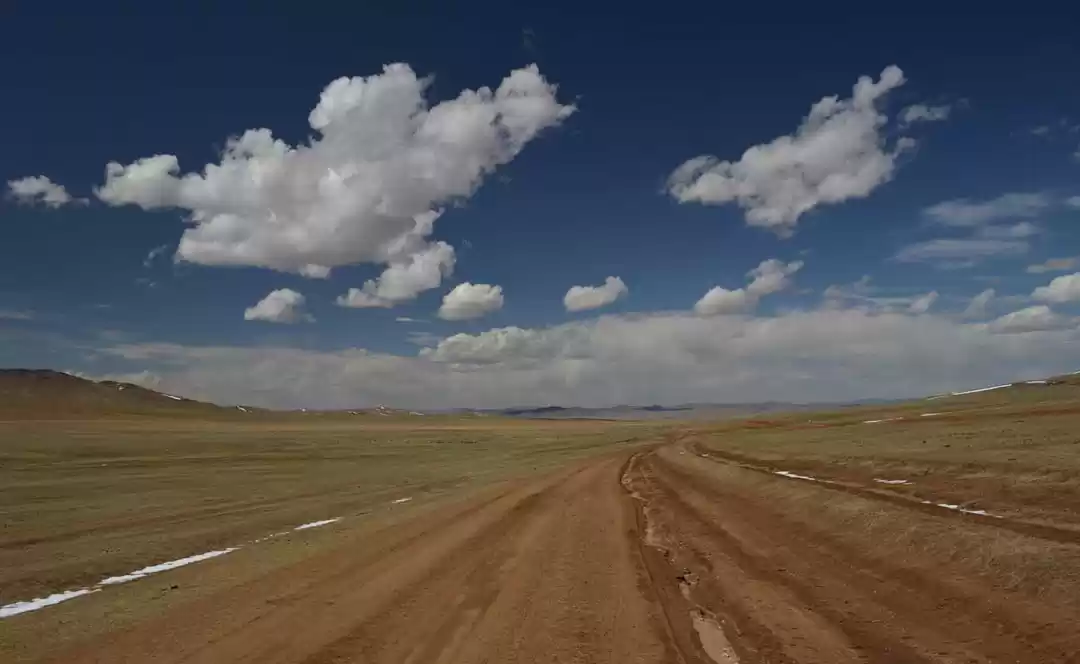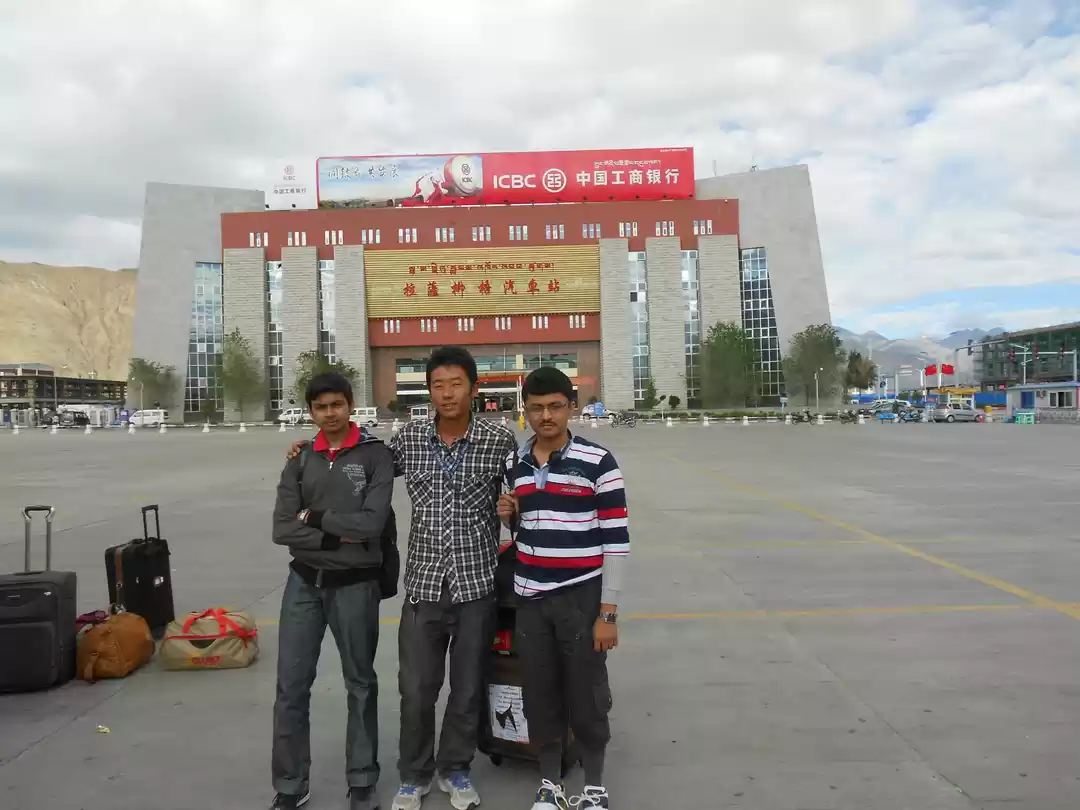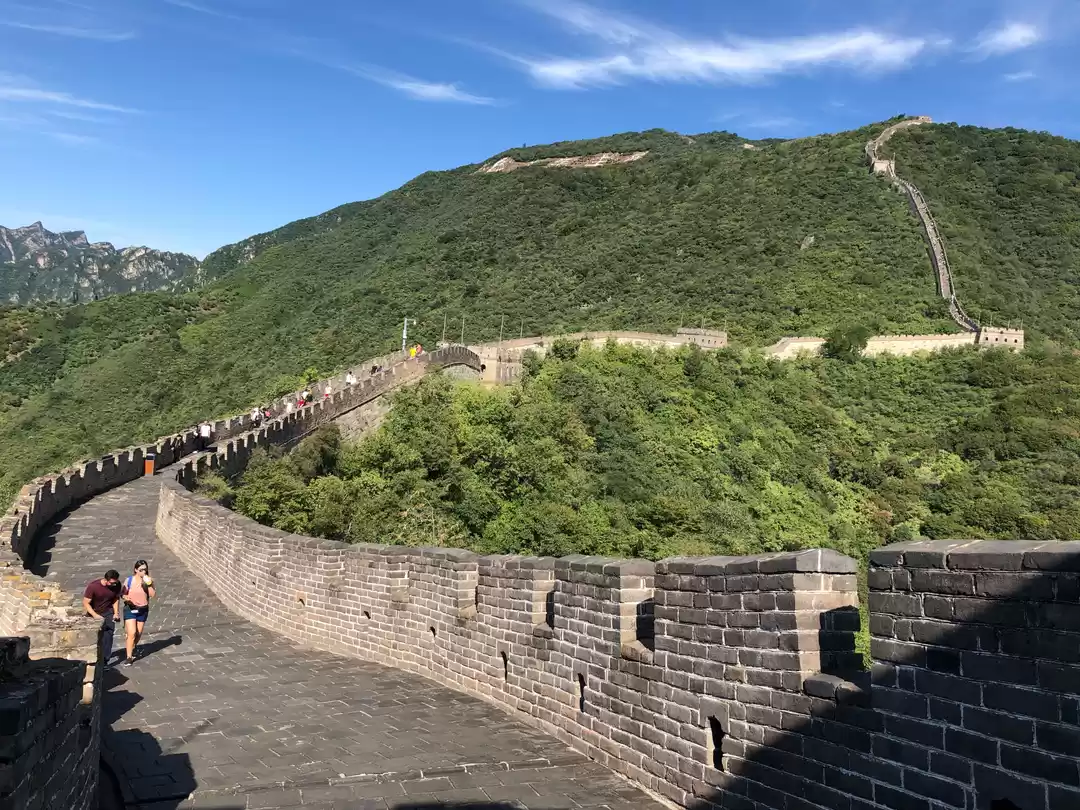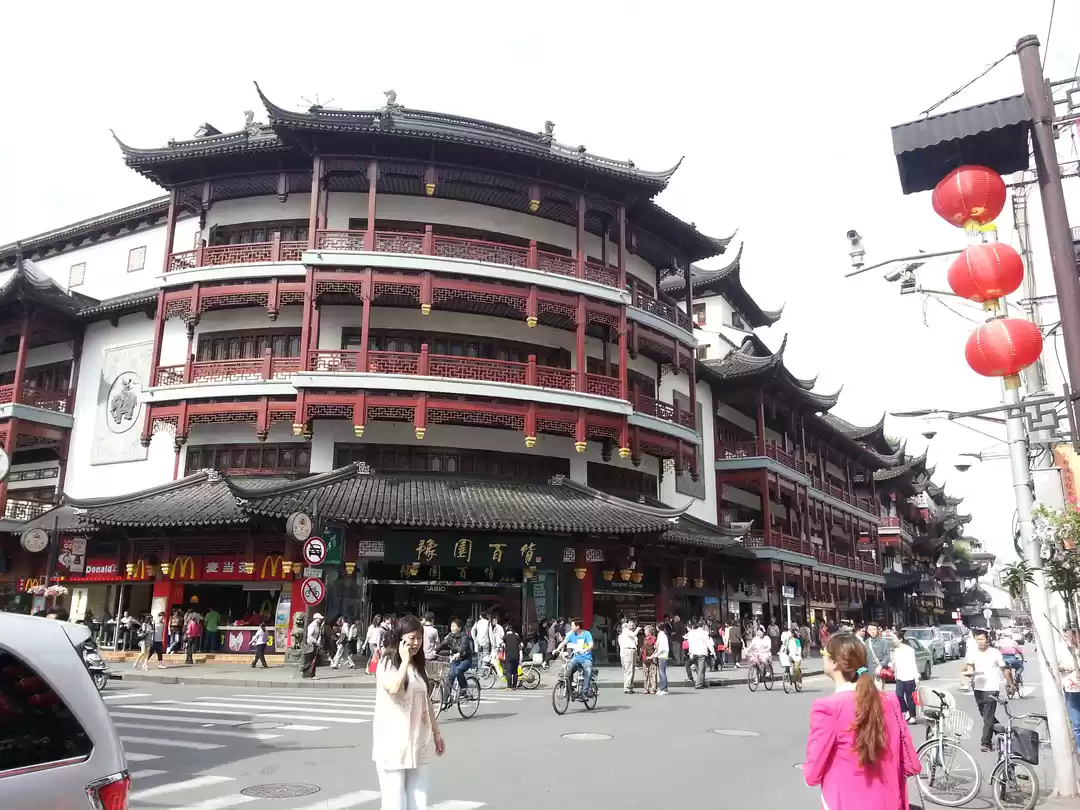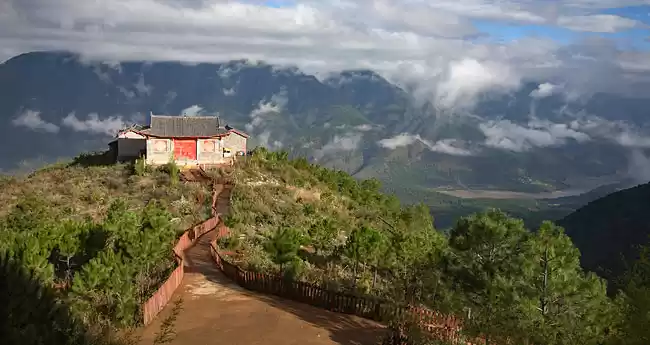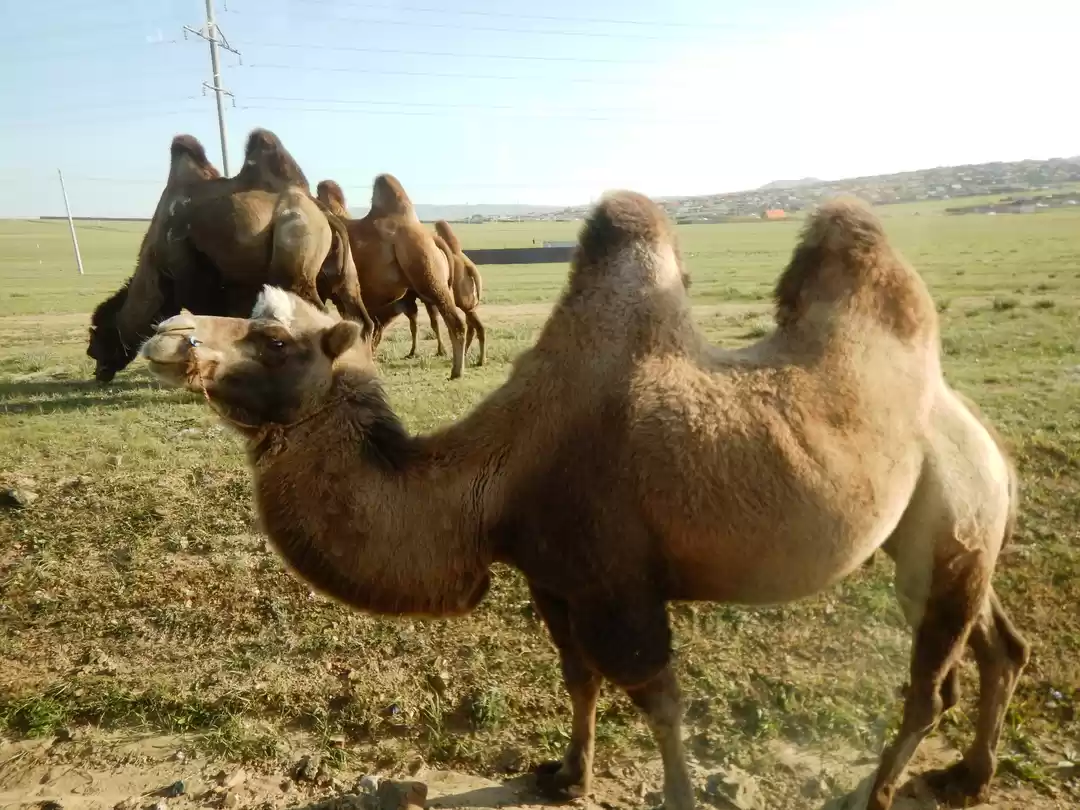In April-May 2016, My wife Beena and I, traveled from London to Siliguri (India), mainly by trains. We crossed ten countries, 17,500 km, crossed under the English Channel, crossed the Aral mountains, the great Siberian plains, lake Baikal, the Gobi desert, the great wall of China and lastly the Himalayas to reach home. This is the fourth leg of the journey - Ulan Bator-Beijing-Lhasa.

After our nomadic escapades in Mongolia, on a chilly frosty morning, we boarded the train to Beijing. Our next phase of the journey started. This time our Chinese train was in much better condition, looked brand new and posh. As we pulled away from Ulan Bator, we passed through the snow covered hills, and snow covered fields dotted with Nomadic settlements.
Soon we reached the outskirts of the Gobi desert. The landscape dried up. Dust storms surrounded us. The tracks would almost disappear in the sand. After miles of barren land, tiny settlements with small wooden cottages would appear.
For the rest of the day, we crossed the desert. Dragged slowly by the ageing Mongolian Twin diesel. We were following the path of the ancient Mongols. Those who crossed the same desert time and again, to invade and conquer China. And then they built the wall.
Soon the desert got dryer and dryer. There was hardly any sign of life left. Sadly, the area was dotted with carcasses of dead animals. Horses, cows, sheep and deer. Probably died of hunger and thirst. Or from some epidemic. Their un-decomposed corpses lay along the track.
By the evening we reached China. The immigration was followed by the usual gauge change procedure, when we switched to the Chinese railway system.
We slept comfortably in our fine linen beds of the soft sleeper. The next morning we were in a whole new world. First we passed lush green paddy fields and small villages. Then we passed some towns. Every home had the red flag flying high. Bullet train tracks rose from the paddy fields. Elevated expressways went past our tracks, overhead.
As we approached Beijing, tall buildings, broad roads, bullet trains, all appeared from behind the mountains. Outside Beijing's main railway station, everything looked chaotic. As expected, it was overtly crowded, and there was no sign of English language anywhere. Anywhere except the metro. So we decided to drag our luggage underground and take the metro to our hostel.
Next couple of days, we sampled everything that Beijing had to offer. From the bustling Hutongs (alleys) to eat delicious food, to the overwhelming show of power around the People's square (formerly or better known as Tien-An-Men square). Soldiers marched as families enjoyed in the square. Across the road, the gigantic portrait of Chairman Mao looks over. Behind the huge gate lies the empirical past - the forbidden city.
The city is not forbidden any more. The emperor is gone. People throng to see the colossal palace buildings and temples. But there are many fruits of the modern world that are forbidden here. Like google and Facebook. It may have become a part of everyday life elsewhere in the world, but most people here were unaware that google exists. Same with Facebook. Such evil western influences are forbidden here. The great wall has been replaced by the Great Firewall of China. Authorities are working 24x7 to keep the invaders away. Trying to stop polluting the minds of their people. I leave it here, open to interpretation of the readers!
The nights were exciting. Language barrier doesn't bother much here. We could easily go around and mingle with the crowd who were enjoying the weekend. From toddlers to the wrinkled, everyone had a smile. There was something for everyone.
Usually cities have street food. Beijing has food street. The entire ecosystem is on the offering, some of them dead, some alive. It is a busy place, almost a madness.

Commuting around Beijing is very easy, with a metro map typed in English. Fast, efficient, comfortable and cheap, it is truly for the common people. Much of media hype has gone after blackening the pollution problems in Beijing. Things have improved, I guess. We found it pretty clean, and never got stuck in epic traffic snarls.
One cannot spend two days in Beijing without visiting the great wall. We took off on a bus packed with foreign tourists to see the wall. With the limited time in hand, we did not have the luxury of exploring much of it. One more wonder of the world ticked off! Another true engineering marvel from the ancient world!
The time had come to move on from Beijing. There was absolutely no sadness about it, because the most exciting part of Journey was finally here. Our permits and train tickets to Tibet were all done, and we ended up in the Beijing West railway station.
This is a specially built train. It is much taller than usual ones, and it has in built oxygen supply vents, gas masks for emergency and other facilities for the high altitude. Yes, we were on the highest railway of the world. It was quite late in the night and we went off to sleep on our hard sleeper berths.
The next morning we were in the middle of breathtaking vista of Xi An province of China. We passed the yellow river and miles and miles of moonscape. Rock-faces, sand dunes, alternating green paddy fields and barren stretches.
This is the deserted part of China, sparsely populated, in a stark contrast with the North and the coastal areas. A few tiny villages popped up here and there. Some very old Buddhist temples started to appear. In the towns, there were mosques to be seen with their prominent domes. Signs were appearing that the Chinese govt has been taking a soft policy towards religions and working towards an open society!
This part of China is not all just barren stretch of land. As a surprise we passed two massive cities. Lanzhou and Xining. Both looked like space age cities, with Manhattan like skylines rising up from the mountains.
In the meantime, we became real good friends with our conductor. With no way to talk meaningfully to anyone in the train, sign language was predominant. Beena proved to be really good at it. By the time we reached Xining, we made scores of friends. Everyone seemed to be jostling outside our compartment. One of the funniest moment of the journey was when we had to fill up the immigration forms. It was written in Chinese. An hour of dumb charades from Beena managed to do the trick. It involved pointing to passports, visas, permits, train berths, showing numbers with fingers, and a lot more!
There were a number of Tibetan monks on the train. When we left Xining, we were out in the absolute wilderness. Next stop Lhasa. Everything in between would be just high mountains and endless fields. And dotted with crystal blue lakes.
We had reached the Tibet autonomous region by afternoon. By that night our train swapped the loco for an enormous diesel loco specially built to pull the train up the highest railway on the world - and added generators to supply power to the train.
The train has been meticulously designed. It has all elements of traditional Tibetan designs, thrown into the modernity. The buffet car was one of the best in the journey. The amazing landscape of the Tibetan plateau passed by, as we sat on a table. It really started to feel like a dream now!
There can be endless debates about this one particular railway. Was it a great thing to build this? What does progress mean to us? Being able to travel on a high speed train as opposed to ride on a horse back? Should old traditions just go on and on, or should we bring in changes? When we were in Siberia, no one questioned these, as it has been a hundred years of the railroad. In Tibet, it has only been ten. I would assume that Tibet's future is exactly same as that of Siberia. Difference is that future reached here 90 years later. We had many conversations with local Tibetans about the good and bad sides of this railway after we reached Lhasa. I am refraining myself to bring those up here. This is a travelogue.
It was thrilling to pass the high mountains. To stop on tiny stations and see the Tibetan villagers come on board. The vast fields with grazing yaks. The snow covered mountains rising to the clear sky. Small streams, blue lakes, small hamlets of farmers.
It was a whole day of visual feast, we traveled through the plateau. This is what they call the roof of the world! By late afternoon, we reached Lhasa. What we found there, and how was Tibet past Lhasa, is a whole different story, and will be told later.
Read about the next leg of our journey here.

